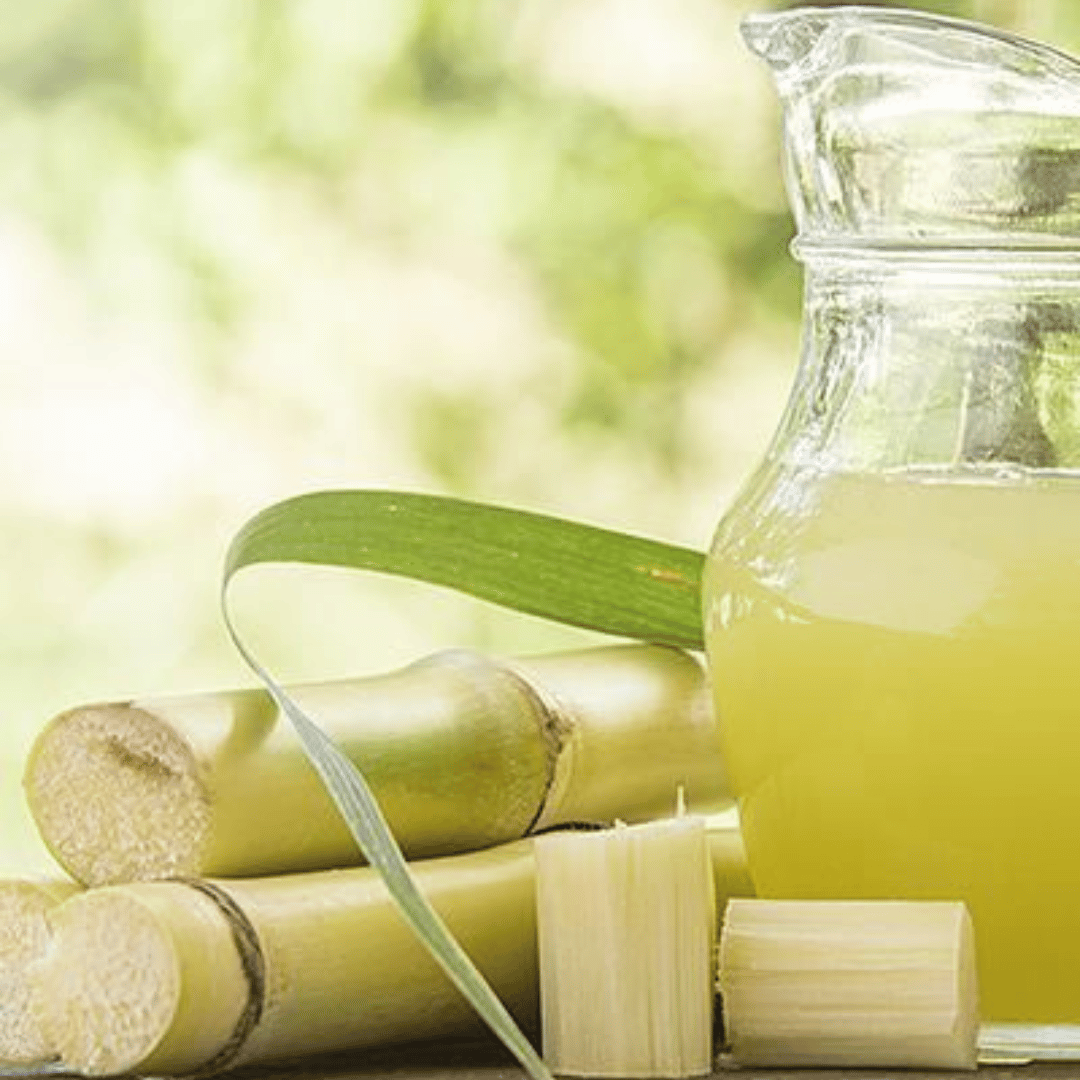During pregnancy, making informed nutritional choices is paramount, and ragi, also known as finger millet, stands out as a remarkably nutrient-packed grain. Its adaptability and remarkable health benefits make it an excellent inclusion in the diet of expectant mothers. Rich in essential nutrients and versatile in its use, ragi offers a spectrum of advantages that support the health and well-being of both the mother and the growing baby.
Ragi: A Nutritional Powerhouse
Ragi boasts an impressive nutritional profile. Packed with essential nutrients like calcium, iron, and fiber, it plays a vital role in supporting maternal health during the transformative journey of pregnancy. The abundance of these nutrients in ragi contributes significantly to the overall well-being of both the mother and the growing fetus.
Here's a closer look at why this humble grain earns its reputation as a nutritional powerhouse for expectant mothers:
Abundant in Essential Nutrients:
Calcium and Iron: Ragi is rich in calcium, vital for bone health, and iron, crucial for preventing anemia during pregnancy.
Protein and Fiber: It's a commendable source of protein and dietary fiber, promoting digestive health and ensuring adequate nutrition.
Balances Blood Sugar Levels:
Ragi has a low glycemic index, aiding in stabilizing blood sugar levels, essential for managing gestational diabetes.
Promotes Digestive Health:
High fiber content aids in preventing constipation, a common discomfort during pregnancy, ensuring a healthy digestive system.
Supports Fetal Development:
Nutrients like folate, found in ragi, contribute to the healthy development of the fetus, particularly vital in the early stages of pregnancy.
Boosts Energy Levels:
Its high energy content provides expectant mothers with a sustained energy source, combating pregnancy-related fatigue.
Assists Postpartum Recovery:
Including ragi post-pregnancy aids in recovering essential nutrients, supporting lactation, and overall postpartum health.
Benefits of Ragi in Pregnancy
This humble millet offers a plethora of benefits. From aiding in digestion to regulating blood sugar levels, ragi acts as a boon for expectant mothers. Its high calcium content strengthens bones, while the presence of iron helps prevent anemia, a common concern during pregnancy. Moreover, the fiber in ragi supports a healthy digestive system, mitigating issues like constipation that pregnant women often encounter.
Let's delve deeper into why this simple grain earns its reputation as a nutritional powerhouse for expecting mothers:
- Nutrient-Rich Composition: Ragi is a powerhouse of essential nutrients like calcium, iron, fiber, and amino acids, vital for the mother's health and the baby's development.
- Iron Booster: Its high iron content helps prevent anemia, a common concern during pregnancy, ensuring optimal blood production and oxygen transport.
- Calcium Source: Ragi is rich in calcium, crucial for the development of the baby's bones and teeth, and it aids in maintaining bone health for the mother as well.
- Fiber-Friendly: The high fiber content in ragi aids in digestion, preventing constipation, a frequent discomfort during pregnancy.
- Energy Provider: Ragi's carbohydrate content offers sustained energy, helping combat fatigue and keeping the mother energetic.
- Regulates Blood Sugar: It has a low glycemic index, assisting in maintaining stable blood sugar levels, a vital aspect of managing gestational diabetes.
- Supports Weight Management: Ragi's dietary fiber content promotes a feeling of fullness, aiding in weight management during pregnancy.
- Immune Boost: It contains antioxidants that bolster the immune system, shielding both the mother and baby from infections.
- Aids Lactation: Ragi's properties are believed to enhance milk production in lactating mothers, supporting breastfeeding.
- Gluten-Free Option: For those with gluten intolerance, ragi serves as a valuable gluten-free alternative.
Including ragi in a well-balanced pregnancy, diet can contribute significantly to the health and development of both the mother and the growing baby.
Navigating the Trimesters with Ragi
Whether it's the early stages or the final trimester, ragi's nutritional benefits remain consistent. Its consumption is particularly advantageous in the third trimester, aiding in the healthy development of the fetus. However, including ragi in the diet during the initial phases of pregnancy is equally beneficial, ensuring a steady intake of essential nutrients right from the start.
First Trimester
- Foundational Nutrition: Ragi's nutrient density aids in providing essential vitamins and minerals crucial in the initial stages of fetal development.
- Combat Nausea: It's easily digestible and can be beneficial for managing nausea, a common discomfort during the first trimester.
- Boosts Energy Levels: Ragi's iron content helps offset fatigue and boosts energy, combating early pregnancy tiredness.
Second Trimester
- Bone Development: With its rich calcium content, ragi supports the developing skeletal system of the baby.
- Blood Pressure Regulation: The magnesium present in ragi can help regulate blood pressure, a concern that might arise during this stage.
- Digestive Health: Its fiber content continues to assist in maintaining proper digestion and preventing constipation.
Third Trimester
- Blood Production: Ragi's iron content becomes particularly significant in the third trimester, ensuring proper blood production for both the mother and the baby.
- Prevents Anemia: Regular consumption helps prevent anemia, a common condition during pregnancy.
- Preparation for Birth: Nutrients like calcium contribute to the baby's bone and teeth development, preparing for the birth process.
As you progress through each trimester, incorporating ragi into your diet can be a beneficial choice, providing essential nutrients tailored to the needs of each stage of pregnancy.
Addressing Common Concerns
During pregnancy, some people might avoid ragi due to concerns about excessive consumption leading to digestive issues or its potential impact on blood sugar levels. However, moderation is usually recommended, and it's advisable to consult a healthcare provider for personalized dietary advice during pregnancy.
Here are some reasons why some individuals might be cautious about its intake:
- Digestive Sensitivity: Ragi's high fiber content might affect individuals with sensitive digestive systems. Some pregnant women might experience bloating or gas due to increased fiber intake.
- Blood Sugar Impact: Ragi has a moderate glycemic index. Concerns arise for those monitoring blood sugar levels, as excess consumption might influence glucose levels.
- Consultation is Key: Pregnant women with specific dietary concerns, such as gestational diabetes or digestive issues, should consult healthcare professionals for personalized guidance.
- Preparation Methods: The form of ragi consumed matters. Some preparations, especially those with added sugars or unhealthy fats, could contribute to unwanted health effects.
- Allergies or Sensitivities: Individuals might have specific allergies or intolerances to ragi, leading to adverse reactions.
- Overconsumption Concerns: Excessive consumption of any food, including ragi, might lead to potential issues, such as nutritional imbalances or unwanted effects.
In essence, moderation and consultation with a healthcare provider play crucial roles in determining whether ragi fits well into an individual's pregnancy diet plan.
Ragi and Breastfeeding
The benefits of ragi extend post-pregnancy, even during the breastfeeding phase. It serves as a nutritious addition to the lactating mother's diet, providing the essential nutrients needed for both mother and baby.
Here are some pointers regarding the consumption of ragi while breastfeeding:
- Nutritional Benefits: Ragi offers a rich source of essential nutrients like calcium, iron, and protein, which can benefit lactating mothers.
- Enhanced Milk Production: Some believe that ragi consumption can aid in enhancing milk production due to its nutritional profile.
- Postpartum Recovery: It contributes to postpartum recovery by providing vital nutrients that support overall health and energy levels.
- Digestive Health: Its high fiber content aids in maintaining digestive health, and reducing constipation, a common postpartum issue.
- Preparation Methods: Opt for healthy and homemade ragi-based dishes free from additives or excess sugar, ensuring a healthier dietary choice.
- Allergic Reactions: As with any food, be aware of potential allergic reactions in yourself or the baby. If there's a history of food sensitivities, monitor for adverse reactions.
- Consultation: Seek advice from a healthcare provider or a lactation consultant to ensure ragi consumption aligns with your specific health conditions or breastfeeding goals.
- Hydration: Incorporate sufficient water intake alongside ragi consumption to maintain hydration, essential for milk production.
- Moderation is Key: While ragi holds benefits, consuming it in moderation as part of a varied diet is recommended.
As with any dietary change during breastfeeding, it's essential to observe how your body and the baby respond and consult a healthcare professional for personalized advice.
Sustainability at A Toddler Thing
Exploring the nutritional advantages of ragi during pregnancy is just one facet of ensuring a healthy journey for expectant mothers. Equally important is selecting brands that share the same commitment to sustainability and environmental consciousness. A Toddler Thing stands out not just for its high-quality products but also for its dedication to sustainable practices. This brand goes beyond providing essentials for parents and children; it champions eco-friendly methods and values, fostering a nurturing environment for both little ones and the planet. Aligning with A Toddler Thing means embracing a responsible and eco-conscious approach to parenting, ensuring that every choice you make contributes positively to a healthier future for your child and the world they'll grow up in.





